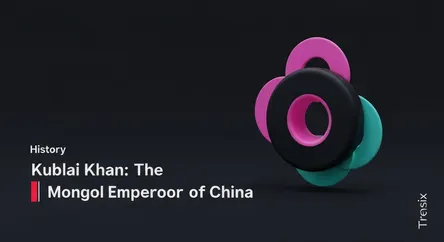History
Kublai Khan: The Mongol Emperor of China

Discover Kublai Khan, the grandson of Genghis Khan who conquered China and established the Yuan Dynasty, fostering a unique era of cultural exchange.
What is it?
Kublai Khan was the fifth Great Khan of the Mongol Empire, reigning from 1260 to 1294. He was the grandson of the legendary Genghis Khan. His most significant achievement was the conquest of the Southern Song dynasty in 1279, which unified China under his rule for the first time in centuries. He established the Yuan Dynasty in China in 1271, becoming its first emperor. Unlike his predecessors who focused solely on conquest, Kublai embraced Chinese culture and methods of governance, moving his capital to Dadu (modern-day Beijing).
Why is it trending?
Kublai Khan remains a figure of historical fascination due to his unique position bridging Mongol and Chinese traditions. His reign is famous for the accounts of Western travelers like Marco Polo, who served in his court and introduced the splendors of his empire to Europe. The era, known as the "Pax Mongolica," saw the reopening of the Silk Road, which promoted significant trade and cultural exchange between the East and West. His lavish summer capital, Xanadu, has been immortalized in literature, adding to his legendary status.
How does it affect people?
Kublai Khan's rule left a lasting impact on world history. His administrative and economic policies had long-term effects; he established a system of provincial administration in China, promoted the use of paper money as the sole currency, and rebuilt the Grand Canal, boosting the economy. This period of stability and trade facilitated the spread of technologies, ideas, and goods across continents. By fostering a multi-cultural empire and opening routes for communication, his reign contributed to a more interconnected world, influencing the development of societies far beyond his own borders.